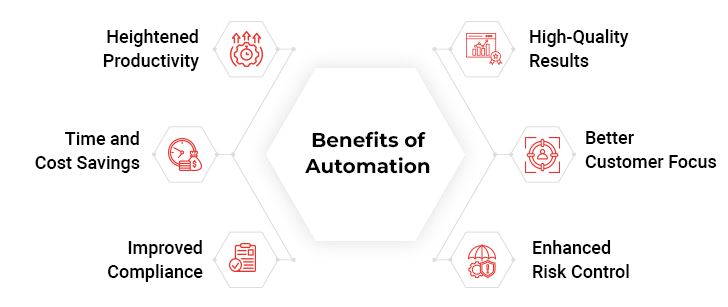In the previous blog, we covered how Insurtech harnesses the power of AI and ML in Insurance software solutions. In this blog, we will delve into how policy management processes, powered by automation, can unlock new levels of efficiency, customer-centricity, and risk intelligence for insurance incumbents.
What is Policy Management Software?
Insurance policy software solutions are centralized platforms that allow insurers to better issue, manage, circulate, rate, update, renew, or cancel policies. These software systems add security and access controls to safeguard and protect confidential data and documentation while allowing seamless access and collaboration among authorized users. The web or cloud-based applications offer unmatched innovation and breadth of advanced capabilities.
Importance of Automating the Insurance Policy Management Process
Process automation is the technology innovation that has taken up an imperative role in the evolving functions of the insurance domain to outpace conventional insurance processes. Policy management software helps to improvise policy management by leveraging process automation and delivers measurable outcomes when deployed with systematic planning.
By using the technology of process automation, the software ensures end-to-end digital integration of the insurance business. The analytics derived from the policy data is the base to elaborate automated decision-making for the insurers to achieve superior results.

Leveraging Automation to Drive Policy Management Efficiency
Integrating automation into the policy management processes can help insurers in boosting efficiency and productivity. Automated policy management also improves the overall management of the agency, thereby contributing to growth and profitability. By leveraging insurance policy automation solutions, insurers can reap the following benefits:
1. Streamlined Policy Issuance
Policy issuance requires a lot of manual work as the insurer needs to fill in internal details after underwriting audits and checks. These details also need to be added to the customer’s portal for their convenience. Process automation ensures pre-build analytical techniques for easing up the tedious process and lessening the strain of cost and time by least resource involvement in the process.
Insurance policy administration software solutions powered by Artificial Intelligence and automation technologies enable insurers to streamline and optimize policy issuance. As a result, insurance agencies can significantly cut down the policy issuance time and improve accuracy. It allows insurers to put more hours back into their day while improving the customer experience.
2. Automated Policy Updates
Modern customers prefer to stay in the loop with the status of their policy. Regular updates help in ensuring regular customer engagement. The improved customer experience increases the likelihood of turning a one-time customer into a repeat and loyal customer.
The insurance policy software leverages the process automation capabilities to perform policy updates like extracting inbound changes from voice transcripts, emails, faxes, or other sources, thereby processing all required changes in the documents and internal systems available for the insurer as well as the customer.
3. Real-Time Data
Often, the policy data, and documentation reside in disparate databases, information silos, or applications. It not only delays data accessibility but also limits the ability of insurers to leverage data for managing processes and making informed decisions.
Policy automation solutions for insurers can seamlessly make updates required in data and records. For example, existing customers submit various update requests, such as address change or update of bank mandate; these are smoothly updated in the system by automated processing, resulting in relaxation for insurers.
Insurance policy management systems also centralize all policy-related information including forms, records, notes, and departmental data. Insurers can maintain an updated database and make it accessible to all stakeholders.
Unlock the Potential of Policy Management
4. Analysis of Value Reports
One of the important functions of automation is transforming the whole of the insurance process for better results in quality by driving accurate document-intensive operations, including the processing of loss run reports, analysis of the statement of value reports and, communicating explanations of evidence of insurability to the customers.
Insurance policy administration software can effectively extract data from multiple sources and analyze it to offer valuable insights. By automating the report generation process, insurers can save time and track the policy management lifecycle in real-time.
5. Improved Customer Experience
Beyond streamlining internal processes, insurance policy automation solutions empower customers with improved experiences. They are equipped with self-service options such as automated policy downloads, claims filing, and payment processing. This empowers customers to manage their policies independently and boosts convenience.
Moreover, insurance policy automation streamlines processes. It paves way for faster policy issuance, endorsement processing and claims handling. As a result, insurers can reduce turnaround times and offer more positive customer experiences.Lastly, with automation, the reliance on manual processes is limited. This reduces errors and miscommunication that can lead to customer delays and frustration.
6. Better Risk Management
Automated policy management processes help insurers strengthen their risk management practices. The software tailors policy underwriting rules to ensure consistent and accurate risk assessment. This translates to better selection of insured parties.
Moreover, the built-in fraud detection capabilities can assess volumes of data in no time. The ML algorithms can identify suspicious patterns and flag potential claims. It helps insurers mitigate losses before they occur. Automation also ensures that the policies and processes are aligned with the ever-changing regulatory requirements. It helps insurers reduce the risk of non-compliance penalties and operate within legal boundaries.
Conclusion
Policy management is a crucial insurance process that needs to be taken care of with the utmost efficiency. The best insurance policy software is one that is powered by the new strides of process automation. It paves the way for the smooth functioning of the whole process of policy management, right from policy issuance to required analysis. Through automation, policy management systems extend a number of benefits such as improved operational efficiency, substantial savings of cost and time of resources, and advanced analytics along with productivity boost.
Case in Focus
A leading multi-line insurance provider based out of the Caribbean, struggled with slow and inefficient legacy systems. The legacy systems handling policy administration and claims management operations were slow, and often required manual interventions. Furthermore, the lack of a central document repository made it difficult for agents to access documents efficiently. To combat these challenges, the team implemented a tailored insurance management system with automation capabilities. As a result of the success story, the insurer was able to consolidate all information in one place, automate and streamline processes to drive efficiency, and reduce manual interventions.






